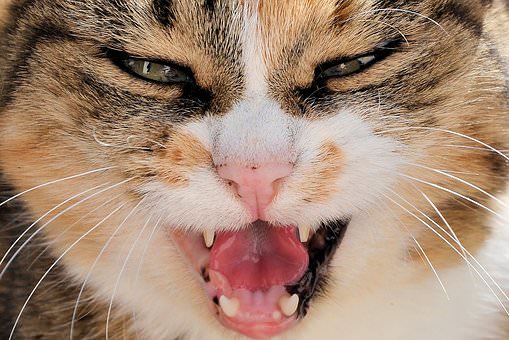Have you ever noticed your cat’s face seemed wet and realized that he was drooling? Drooling seems more like a dog thing (think Turner and Hooch here), but cats can drool too and they do so for a variety of reasons. Drooling is a term that describes excessive saliva production to the point that it comes out of the mouth.
Some cats drool when they are content. These cats will often be purring and rubbing on things. They usually seem relaxed. If your cat is a contented “drooler”, you probably already know that about him. If he thinks that you are about to offer him a morsel of something, he could drool in expectation. There is no pathology behind these types of drooling and they are not harmful.
Cats will occasionally drool when they are anxious. If you have not trained your cat to her carrier or accustomed her to the car, she might drool from nervousness when traveling. Some cats even drool from nausea associated with motion sickness. You can ask your vet if there are things you can do to assist your cat with these issues, but they are less likely to be harbingers of bigger issues.
The most important reason for drooling is disease. These are the reasons that require you to get help right away for your cat. Pain can cause drooling when there are mouth ulcers or dental pathology. Sometimes masses in the mouth can change the way your cat uses his tongue and saliva will leak out. Certain types of oral infections can increase salivation also. These causes will often be accompanied by a foul odor to the mouth and changes in eating habits and potentially weight loss. Cats are at high risk for painful dental lesions, called Odontoclastic Resorptive Disease, that could contribute to hypersalivation as well. Because this painful and very common issue, every cat should have his dental health evaluated at least yearly by a licensed veterinarian.
The best way to tell if your cat’s drooling is significant is to factor in all the other things surrounding it. Is it always when he is cuddling you and purring or anticipating food? There is less cause for concern. Does it only happen in the car or in the carrier? These are more likely to be behavioral responses or motion sickness. But if your cat has become very finicky and won’t eat things that he used to love or seems to be losing weight, especially if you can perceive a foul odor to his mouth and face, call your vet right away.
Love Cats? Find out more by following me on Facebook. Click here.

